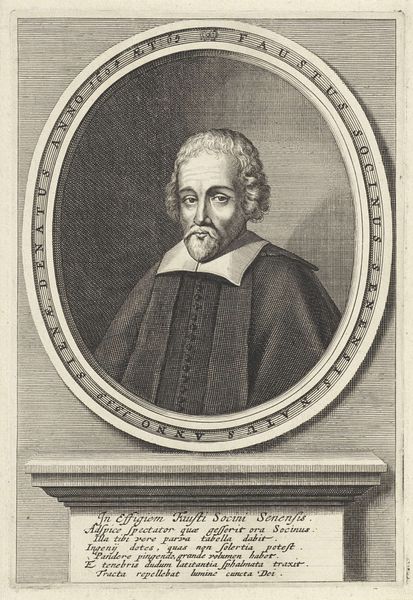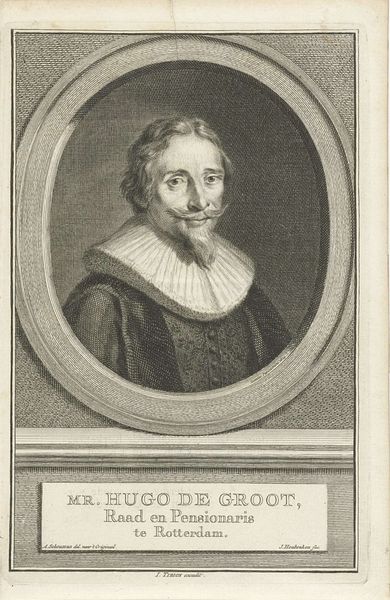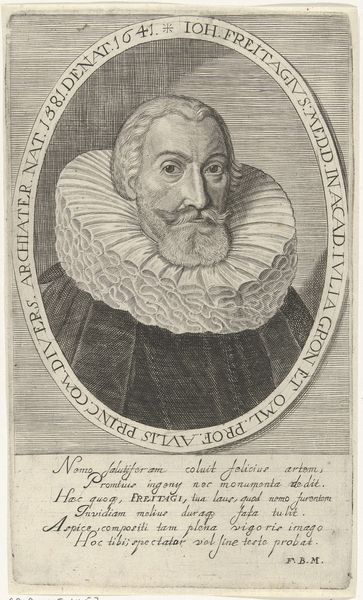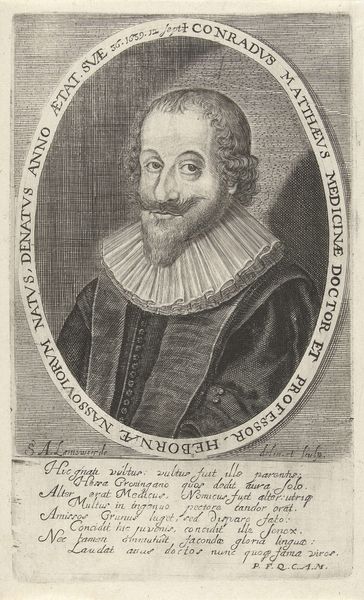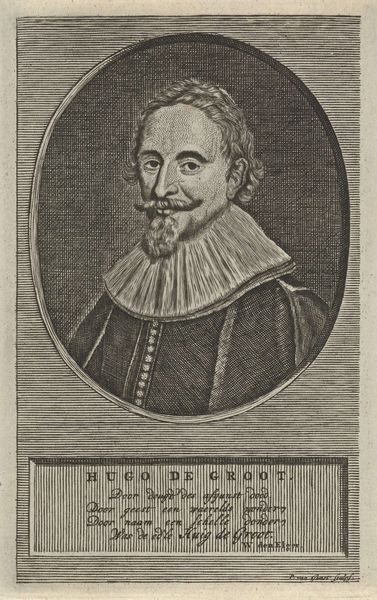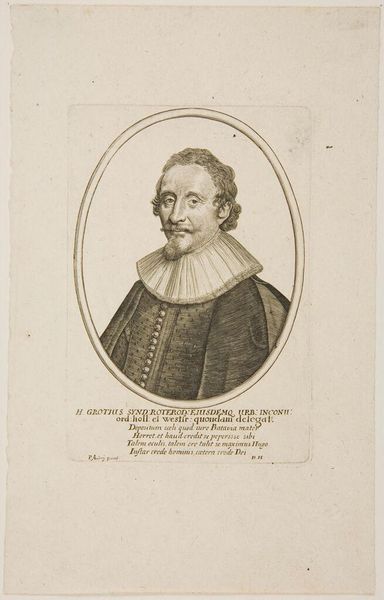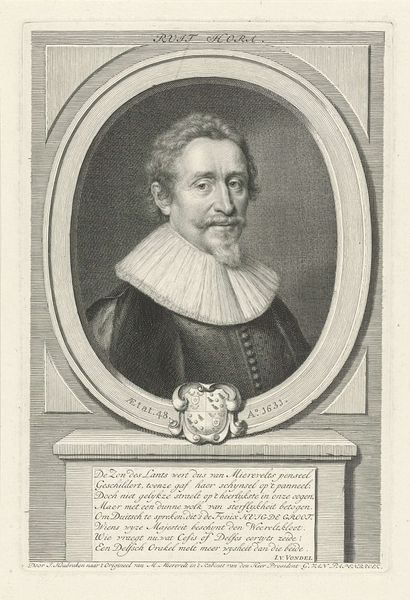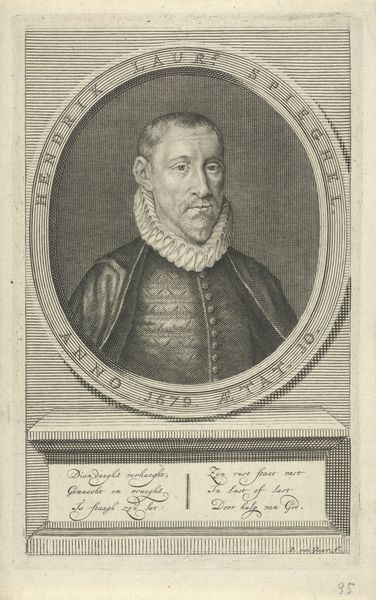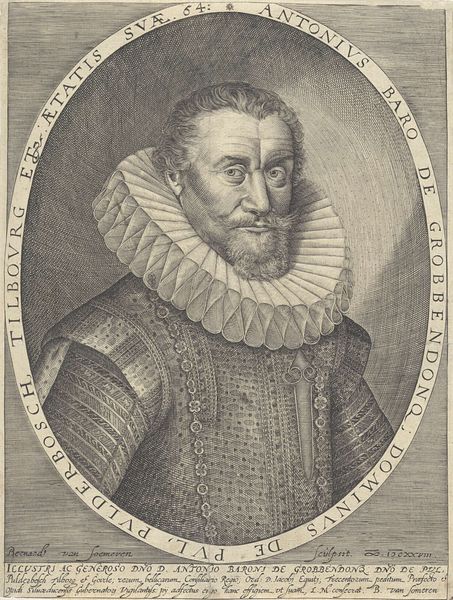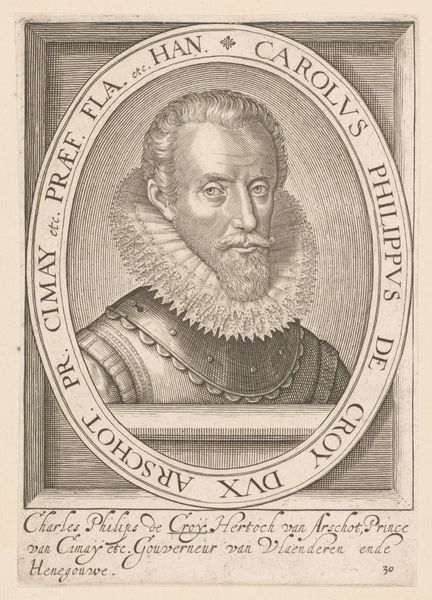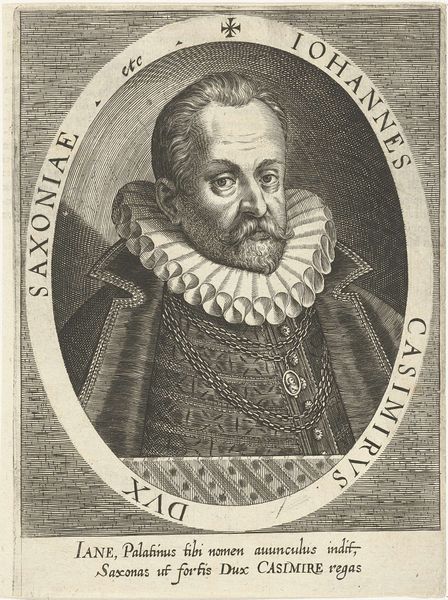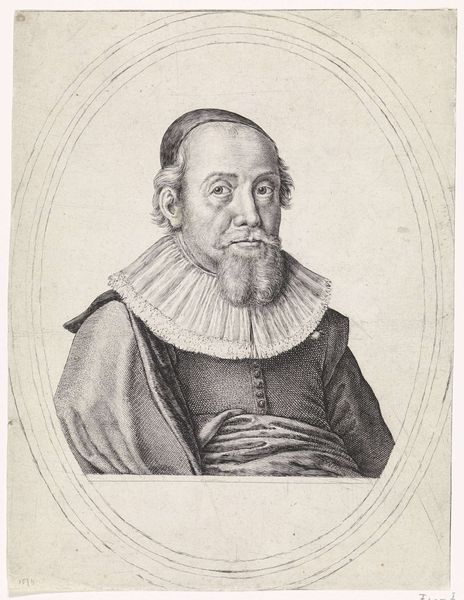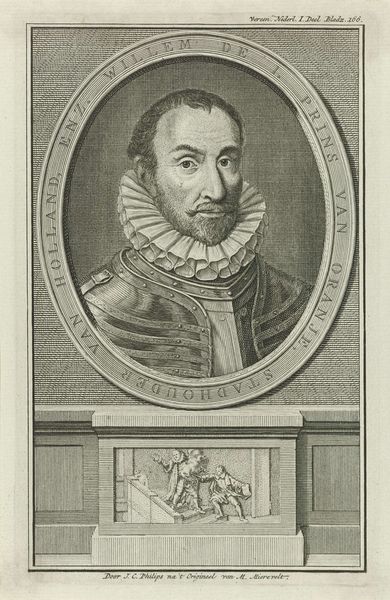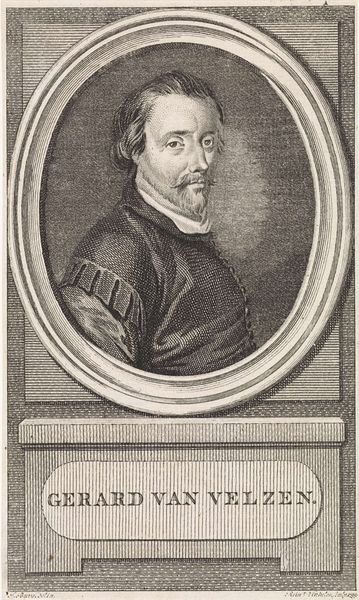
drawing, print, engraving
#
portrait
#
drawing
#
baroque
# print
#
old engraving style
#
portrait reference
#
19th century
#
line
#
portrait drawing
#
history-painting
#
engraving
Dimensions: height 264 mm, width 180 mm
Copyright: Rijks Museum: Open Domain
Abraham van der Wenne made this portrait of Hugo de Groot, likely in the late 17th century, using engraving. It embodies the Dutch Republic’s self-image, but also prompts questions about the role of portraiture in shaping historical narratives. Consider the laurel wreath surrounding de Groot: a classical reference signalling his intellectual and political importance. This was a period where the Dutch Republic was asserting its cultural and economic dominance. De Groot, a key figure in law and politics, became a symbol of Dutch identity, which had been shaped by its struggle for independence from Spain. The print below the portrait, along with the Latin phrases "ruit hora" and "MUSE DE CROOL", may contain coded references to the intellectual circles who commissioned and viewed this image. To understand this artwork fully, one might delve into the archives of the period, exploring political pamphlets, legal documents, and the correspondence of intellectuals to uncover the web of meanings this portrait held for its contemporary audience.
Comments
No comments
Be the first to comment and join the conversation on the ultimate creative platform.
